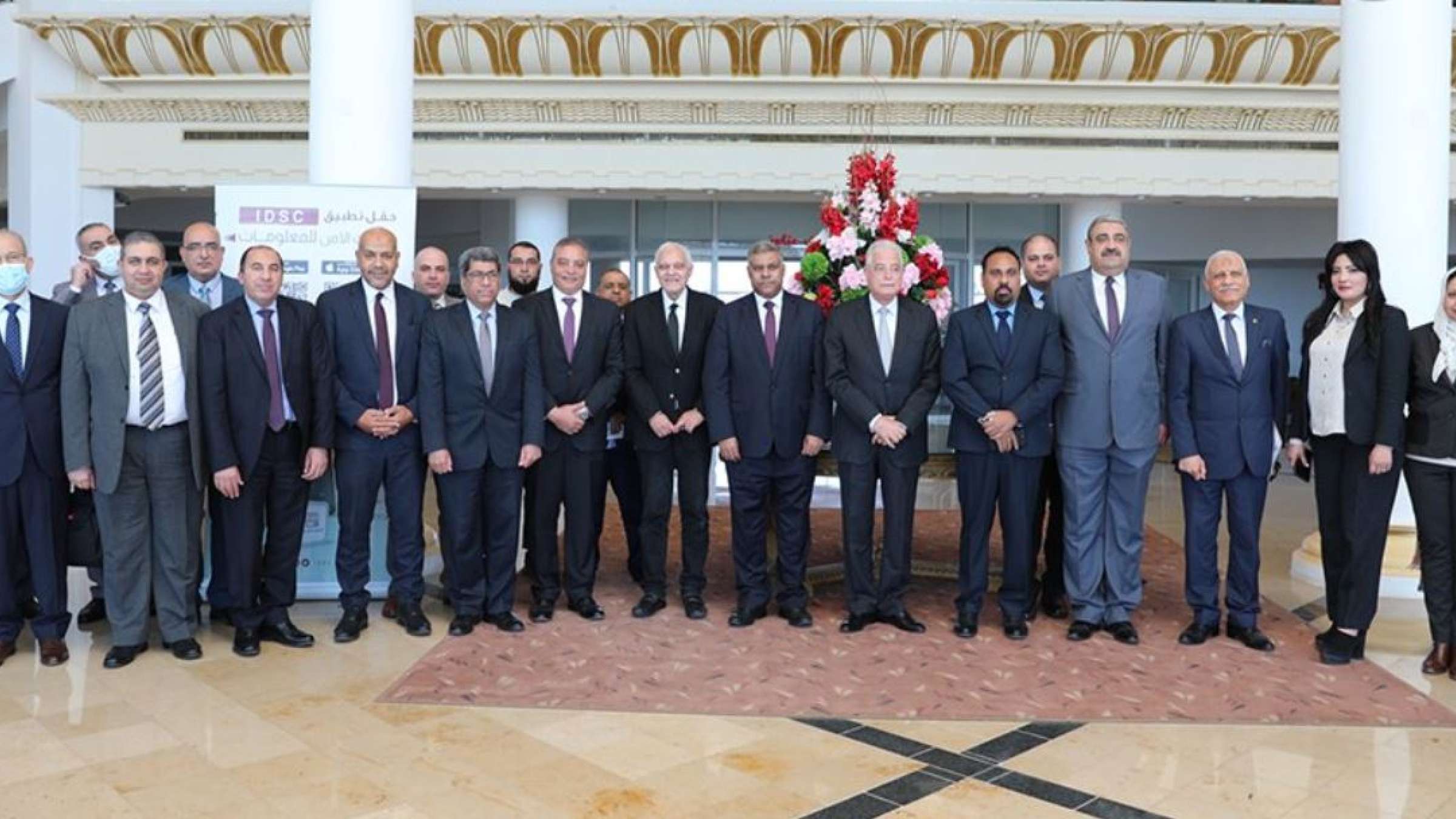Final Regional Closing Seminar for Build Back Better from COVID-19 in the Arab States: Applying the Sendai Framework for Disaster Risk Reduction and Enabling a Prevention-Oriented and Risk-Informed Approach

The Regional Forum to Build Back Better in the wake of the COVID-19 pandemic in the Arab Region was concluded with a speech by His Excellency Major General Khaled Fouda, Governor of South Sinai. He stressed the importance of cooperation with the UNDRR Regional Office for the Arab States (ROAS) to the resilience of Egypt's governorates and their readiness for sustainable development.
The Final Regional Closing Seminar for Building back Better from COVID-19 in the Arab States: Applying the Sendai Framework for Disaster Risk Reduction and Enabling a Prevention-Oriented and Risk-Informed Approach was organized for two days in Sharm El-Sheikh and brought together regional, national, and local governments and stakeholders from the three target countries; Jordan, Egypt, and Lebanon to review and share the activities and achievements made by the Regional BBB Initiative across the three implementing countries and reflect on the main outcomes and lessons learned from the initiative with regional and national stakeholders and partners involved. It was an opportunity to shed the light on the participatory consultative approach that was utilized in updating the National Disaster Risk Reduction Strategies and Platforms’ structures and to highlight the main challenges that were encountered in each country during the updating process while emphasizing the actionable corrective measures that were utilized to overcome those challenges. Additionally, the seminar will also support the sharing of experiences and lessons learned among the three countries.
Mr. Sujit Mohanty, Chief of UNDRR (ROAS), highlighted the importance of this initiative, which was supported by the Egyptian government and the generous funding of the government of Japan to support the climate change agenda and the different activities at the regional, national, and local levels to integrate measures and considerations of biological hazards and climate change in the national and local strategies for disaster risk reduction in line with the Sendai Framework, the Sustainable Development Goals and the Paris Agreement on Climate Change. Mr. Mohanty added: “Reducing disaster risk in our today’s world requires more effort on the part of all governments and stakeholders, as the responsibility for protecting people’s lives and livelihoods is a shared one and requires concerted and coordinated efforts. DRR and climate change are a pure development challenge and, without paying adequate attention to it, we will not be able to achieve the sustainable development that we aspire.”
Representatives of Egypt, Jordan, and Lebanon reviewed their experiences and recommendations at the national and local levels during the forum and presented all extracts that will be worked on in the region.
Background
The COVID- 19 pandemic proved to be one of the most challenging global disasters that have been witnessed recently. Its wide-ranging effects have led to severe socio-economic impacts in most countries, especially the Arab region which is most impacted by climate change and has become a hotspot for climate risk. It has also proved the complex interdependencies between different sectors that go beyond public health concerns. In addition, it has also revealed the urgent need to direct the focus in disaster risk management towards the integration of biological hazards (epidemics and pandemics outbreak) and climate risks, being key factors affecting the countries’ developments at all levels and towards ensuring multi-hazard disaster risk management.
In March 2021, UNDRR-ROAS with the support of the Government of Japan initiated a regional initiative on “Building back Better from COVID-19 in the Arab States: Applying the Sendai Framework for Disaster Risk Reduction and Enabling a Prevention-Oriented and Risk-Informed Approach” to help Arab governments in developing legislation, policies, and plans that will enable them to Build Back Better (BBB) and rise back stronger from the current impacts of the pandemic. The initiative was launched across three countries (Jordan, Egypt, and Lebanon) and implemented in collaboration with WHO and UNDP. It included several multi-level activities on regional, national, and local levels that aimed towards the incorporation of biological hazard risk (epidemics and pandemics outbreak) and climate risk measures and considerations in national and local DRR strategies in line with Sendai Framework and coherently with the Sustainable Development Goals and Paris Agreement on Climate Change. It also included the development of various online training materials and activities towards building capacities and leveraging partnerships with relevant actors and stakeholders, notably media, considering the " Whole of Society” approach.

